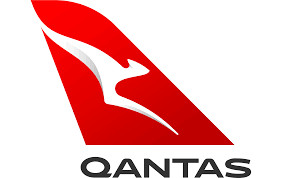
Despite reporting annual losses for the third consecutive year, the national carriers of Australia and New Zealand claim that the worst of the coronavirus crisis is now behind them. With the pandemic's "existential crisis now over," according to Qantas, demand is rising.
Since March, Air New Zealand claims to have seen "a very strong recovery in bookings and revenues." Both nations had enacted some of the strictest travel restrictions against pandemics.
In a statement released on Thursday, Qantas stated that its underlying loss before tax had increased from the prior year to A$1.86bn ($1.3bn) in the year ending in June.
The business claimed to have reduced its net debt to a better than anticipated level.
"The speed and scale of that recovery has been exceptional," Qantas CEO Alan Joyce said.
"Our teams have done an amazing job through the restart and our customers have been extremely patient as the whole industry has dealt with sick leave and labour shortages in the past few months," Joyce added.
In February, Australia once again allowed visitors from abroad. That signalled a conclusion after almost two years. As borders reopened, Qantas struggled to resume its services, much like the majority of the world's airlines.
To address a severe labour shortage, it asked senior executives to work as baggage handlers at the airports in Sydney and Melbourne. Flying is the only practical way to get around Australia if you're in a hurry due to the vast distances and lack of a good intercity rail network (even between Sydney and Melbourne, one of the busiest air routes in the world).
However, it hasn't always been a particularly pleasurable experience as traveller demand increases.
The company's under-fire chief executive Alan Joyce was on the offensive earlier this week, arming frequent flyers with status upgrades, discount coupons, and access to lounges in addition to apologies. These most recent findings imply that the issue is less about luring people back into the air. Bookings have increased, indicating that more people want to travel.
That will eventually aid in restoring its balance sheet. However, Qantas is aware that repairing its reputation is also urgently necessary.
Also on Thursday, Air New Zealand reported that its pre-tax losses for the year ended in June had increased to NZ$725 million ($449.8 million).
However, over the same time period, operating revenue increased by 9 per cent to NZ$2.7 billion.
Greg Foran, the chief executive of Air New Zealand, stated that the company was in the "revive" stage of its Covid-19 turnaround.
"When travel restrictions began to lift in March the company recorded a very strong recovery in bookings and revenues," Foran said.
"This trend continues, with high booking levels through July and August," he added.
(Source:www.bbc.com)
Since March, Air New Zealand claims to have seen "a very strong recovery in bookings and revenues." Both nations had enacted some of the strictest travel restrictions against pandemics.
In a statement released on Thursday, Qantas stated that its underlying loss before tax had increased from the prior year to A$1.86bn ($1.3bn) in the year ending in June.
The business claimed to have reduced its net debt to a better than anticipated level.
"The speed and scale of that recovery has been exceptional," Qantas CEO Alan Joyce said.
"Our teams have done an amazing job through the restart and our customers have been extremely patient as the whole industry has dealt with sick leave and labour shortages in the past few months," Joyce added.
In February, Australia once again allowed visitors from abroad. That signalled a conclusion after almost two years. As borders reopened, Qantas struggled to resume its services, much like the majority of the world's airlines.
To address a severe labour shortage, it asked senior executives to work as baggage handlers at the airports in Sydney and Melbourne. Flying is the only practical way to get around Australia if you're in a hurry due to the vast distances and lack of a good intercity rail network (even between Sydney and Melbourne, one of the busiest air routes in the world).
However, it hasn't always been a particularly pleasurable experience as traveller demand increases.
The company's under-fire chief executive Alan Joyce was on the offensive earlier this week, arming frequent flyers with status upgrades, discount coupons, and access to lounges in addition to apologies. These most recent findings imply that the issue is less about luring people back into the air. Bookings have increased, indicating that more people want to travel.
That will eventually aid in restoring its balance sheet. However, Qantas is aware that repairing its reputation is also urgently necessary.
Also on Thursday, Air New Zealand reported that its pre-tax losses for the year ended in June had increased to NZ$725 million ($449.8 million).
However, over the same time period, operating revenue increased by 9 per cent to NZ$2.7 billion.
Greg Foran, the chief executive of Air New Zealand, stated that the company was in the "revive" stage of its Covid-19 turnaround.
"When travel restrictions began to lift in March the company recorded a very strong recovery in bookings and revenues," Foran said.
"This trend continues, with high booking levels through July and August," he added.
(Source:www.bbc.com)














